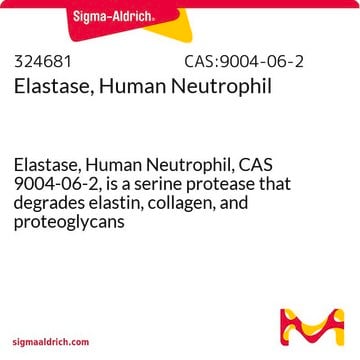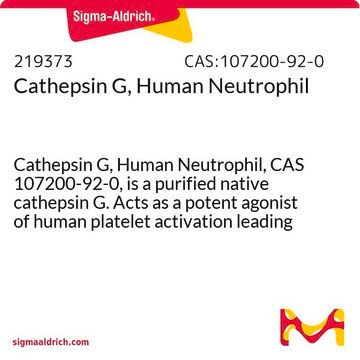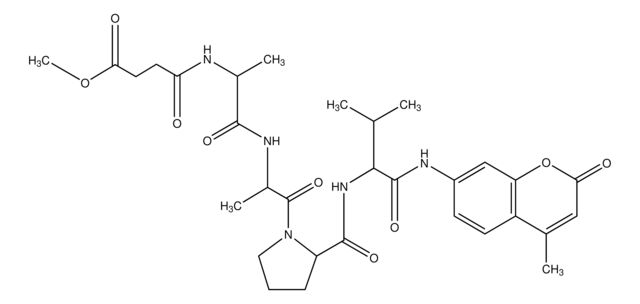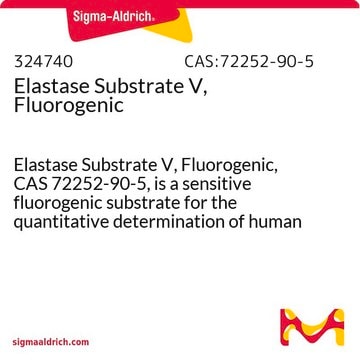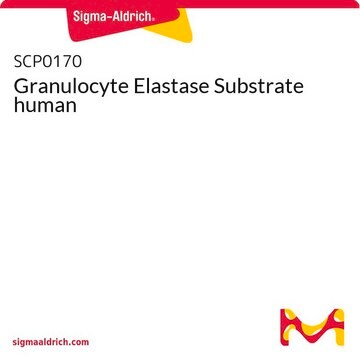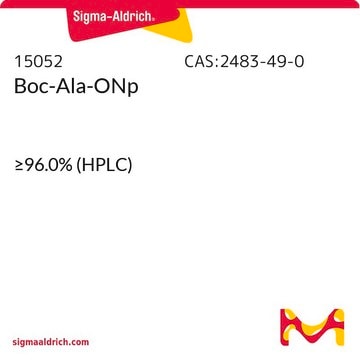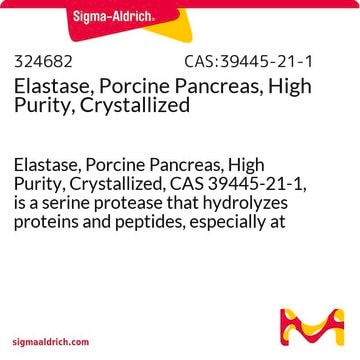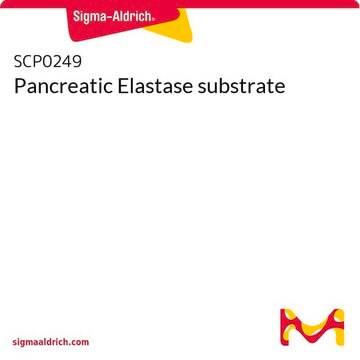E8140
Elastase from human leukocytes
lyophilized powder, ≥50 units/mg protein (Bradford)
Sinónimos:
Lysosomal elastase
About This Item
Productos recomendados
biological source
human leucocytes
Quality Level
form
lyophilized powder
specific activity
≥50 units/mg protein (Bradford)
mol wt
29 kDa
UniProt accession no.
shipped in
dry ice
storage temp.
−20°C
Gene Information
human ... ELA2(1991) , ELANE(1991)
¿Está buscando productos similares? Visita Guía de comparación de productos
Categorías relacionadas
General description
Application
- to measure serum elastase activity
- in proteolytic digestion of fibronectin and salivary glands
- in neutrophil elastase (NE) activity assay
- cell-free NE digestion of E-cadherin
- scratch wound assay
- in a study that determined that fragments of Nle3-angiotensin(1-7) accelerate healing in dermal models
Biochem/physiol Actions
Physical properties
Isoelectric point: pI = 8.77 - 9.55
Unit Definition
Physical form
Application
Inhibitor
Substrate
Storage Class
13 - Non Combustible Solids
wgk_germany
WGK 1
flash_point_f
Not applicable
flash_point_c
Not applicable
Certificados de análisis (COA)
Busque Certificados de análisis (COA) introduciendo el número de lote del producto. Los números de lote se encuentran en la etiqueta del producto después de las palabras «Lot» o «Batch»
¿Ya tiene este producto?
Encuentre la documentación para los productos que ha comprado recientemente en la Biblioteca de documentos.
Los clientes también vieron
Chromatograms
application for HPLCNuestro equipo de científicos tiene experiencia en todas las áreas de investigación: Ciencias de la vida, Ciencia de los materiales, Síntesis química, Cromatografía, Analítica y muchas otras.
Póngase en contacto con el Servicio técnico